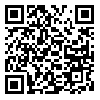Volume 26, Issue 1 (Spring 2019)
Journal of Translational Medical Research. 2019, 26(1): 21-31 |
Back to browse issues page
Download citation:
BibTeX | RIS | EndNote | Medlars | ProCite | Reference Manager | RefWorks
Send citation to:



BibTeX | RIS | EndNote | Medlars | ProCite | Reference Manager | RefWorks
Send citation to:
Mousavinejad S M, Sanagouye Moharer G, Zarban A. The effectiveness of mindfulness-based cognitive therapy on rumination and glucose index of type 2 diabetic patients. Journals of Birjand University of Medical Sciences 2019; 26 (1) :21-31
URL: http://journal.bums.ac.ir/article-1-2518-en.html
URL: http://journal.bums.ac.ir/article-1-2518-en.html
1- Department of Psychology, Islamic Azad University, Zahedan branch, Zahedan, Iran
2- Department of Psychology, Islamic Azad University, Zahedan branch, Zahedan, Iran ,Reza.sanagoo@gmail.com
3- CardioVascular Diseases Research Center, Birjand University of Medical Sciences, Birjand, Iran.
2- Department of Psychology, Islamic Azad University, Zahedan branch, Zahedan, Iran ,
3- CardioVascular Diseases Research Center, Birjand University of Medical Sciences, Birjand, Iran.
Abstract: (10471 Views)
Background and Aim: Mindfulness-Based Cognitive Therapy is from third-wave therapies that their effectiveness has been tested in a range of different psychiatric disorders. The aim of this study was to determine the effectiveness of cognitive therapy based on mind-awareness on rumination and glucose index of type 2 diabetic patients.
Materials and Methods: The present study was a quasi-experimental pre-test and post-test design. From among all type 2 diabetic patients referring to Birjand Diabetes Center in the second six months of 2017, 40 diabetic patients (20 experimental groups, 20 in the control group) were selected samples as available. Data were collected by Nalen-Huxma and Marrow rumination questionnaire and also by performing HbA1c (hemoglobin glycosylated) and FBS (fasting blood glucose) tests. For the experimental group, cognitive therapy based on mindfulness was conducted by Segal et al. Method in 8 sessions of 60 minutes, while the control group did not receive any intervention. Finally, descriptive statistics including mean and standard deviation were used to describe the data and statistical analysis of covariance, Levin and Kolmogorov-Smirnov analysis was used to analyze the data. The significance level was considered 0.05.
Results: The results showed a significant difference in mean scores of rumination and fasting blood sugar (FBS) in the experimental group before and after the intervention were(P<0.05) but the changes in mean glycosylated hemoglobin (HbA1c) view failed and changes in the control group were not significant.
Conclusion: The use of cognitive therapy based on Mindfulness, as an effective educational intervention, will be effective in decreasing the rumination and FBS in patients with type 2 diabetes and however, it is probably not effective in reducing hemoglobin glycosylated (HbA1c) in patients with type 2 diabetes.
Materials and Methods: The present study was a quasi-experimental pre-test and post-test design. From among all type 2 diabetic patients referring to Birjand Diabetes Center in the second six months of 2017, 40 diabetic patients (20 experimental groups, 20 in the control group) were selected samples as available. Data were collected by Nalen-Huxma and Marrow rumination questionnaire and also by performing HbA1c (hemoglobin glycosylated) and FBS (fasting blood glucose) tests. For the experimental group, cognitive therapy based on mindfulness was conducted by Segal et al. Method in 8 sessions of 60 minutes, while the control group did not receive any intervention. Finally, descriptive statistics including mean and standard deviation were used to describe the data and statistical analysis of covariance, Levin and Kolmogorov-Smirnov analysis was used to analyze the data. The significance level was considered 0.05.
Results: The results showed a significant difference in mean scores of rumination and fasting blood sugar (FBS) in the experimental group before and after the intervention were(P<0.05) but the changes in mean glycosylated hemoglobin (HbA1c) view failed and changes in the control group were not significant.
Conclusion: The use of cognitive therapy based on Mindfulness, as an effective educational intervention, will be effective in decreasing the rumination and FBS in patients with type 2 diabetes and however, it is probably not effective in reducing hemoglobin glycosylated (HbA1c) in patients with type 2 diabetes.
Type of Study: Original Article |
Subject:
Clinical Psychology
Received: 2018/06/18 | Accepted: 2018/10/27 | ePublished: 2019/03/17
Received: 2018/06/18 | Accepted: 2018/10/27 | ePublished: 2019/03/17
Send email to the article author
| Rights and permissions | |
 |
This work is licensed under a Creative Commons Attribution-NonCommercial 4.0 International License. |







